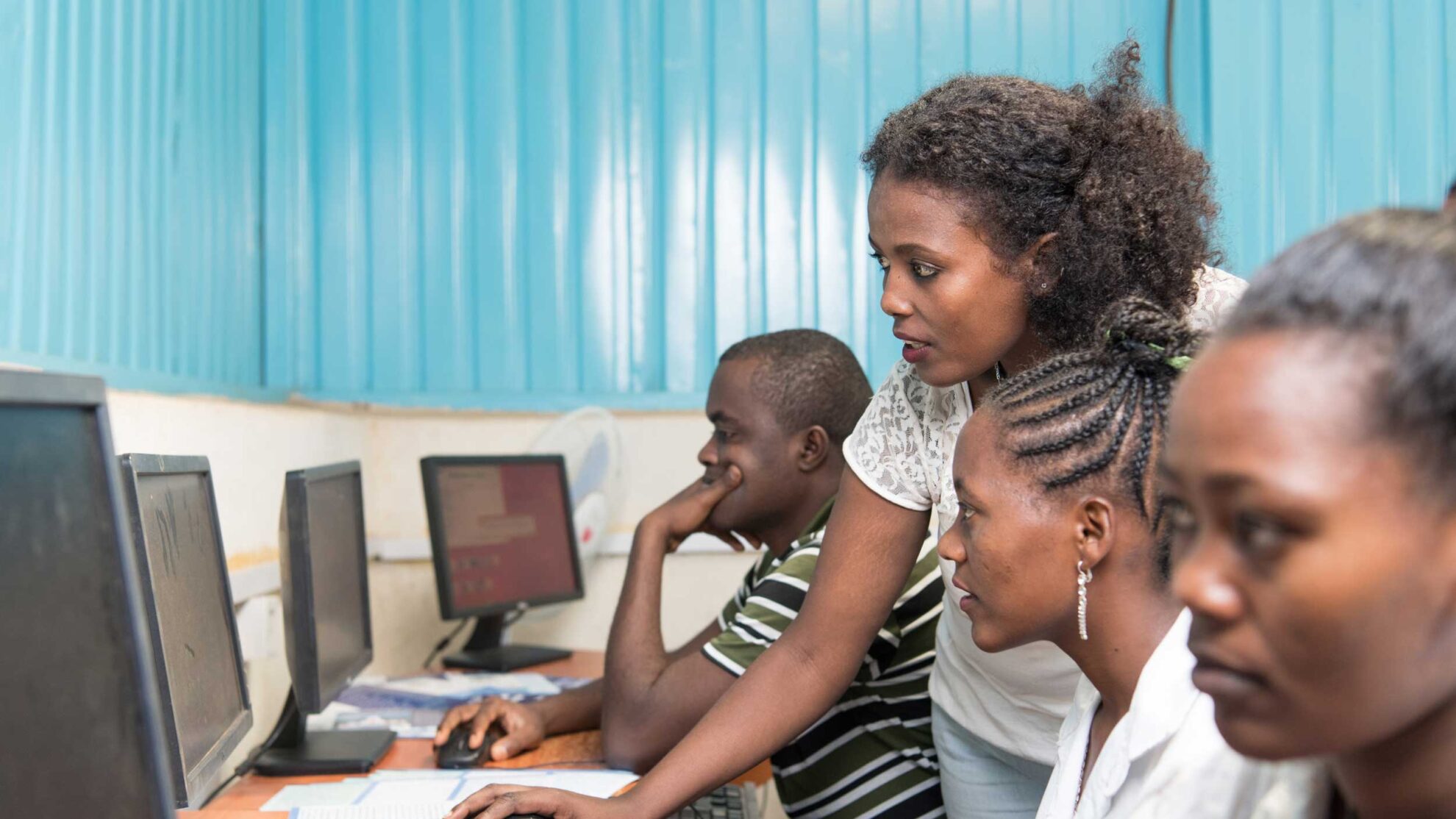The COVID-19 pandemic marked a turning point in how governments deliver public provisions. As social distancing became a necessity, digital tools emerged as a critical mechanism for public provisioning, particularly for emergency relief. Now, several years after the pandemic’s peak, digital public infrastructure has solidified its place. It has extended beyond relief measures to other domains affecting the informal economy, such as social protection, taxation, and business support. Many of the policy areas which are being digitalized are those that fall under the broader agenda of formalizing the informal economy.
While digitalization can bring benefits such as efficiency, convenience, and potentially wider access, it also introduces significant challenges and risks for workers in informal employment. These risks must be addressed to ensure that digitalization – and the formalization agenda into which digital is increasingly entrenching itself – enhances equity and inclusion rather than exacerbating existing disparities.
The Benefits and Risks for Workers in Informal Employment
Digital tools have the potential to transform public infrastructure by eliminating inefficiencies that disproportionately burden workers in informal employment. For instance, the ability to bypass long queues to register for a business license or access social protection benefits can translate directly into financial savings for workers whose livelihoods depend on daily earnings. However, these positives may also have their downsides.
A recent research report titled The Digitalisation of Social Protection in Africa: The Perspective of Marginalised Workers, notes that not all workers have equitable access to digital tools, and that the very systems designed to streamline processes can inadvertently exclude those most in need of support. In many rural areas, poor connectivity renders digital tools inaccessible. Even in urban settings, the affordability of data and smartphones remains a persistent issue. Another significant obstacle is the lack of digital literacy among many workers in informal employment. While training programs and intermediary support from worker organizations can help to mitigate against this problem, worker organizations themselves require greater support to meet this challenge. Moreover, digital systems often rely on algorithms to make decisions, which can lack transparency and accountability. This is particularly problematic when these algorithms are managed by private entities. Workers may find themselves excluded from services or unable to seek redress due to the opaque nature of automated systems.
Beyond social protection, the rise of digital money has introduced new forms of taxation on workers and enterprises in the informal economy. Ghana’s electronic transfer levy (E-levy), implemented in 2022, was an explicit attempt to tax the informal economy. Research from WIEGO and the International Centre for Tax and Development (ICTD) showed that ultimately the levy was regressive, although the introduction of a threshold under which taxes were not levied did work to shield the poorest workers from the tax. Nevertheless, the levy has been met with widespread disapproval from workers in informal employment who expressed concerns about equity and dissatisfaction with government performance.
The challenges of digitalization extend beyond the more clearly visible impacts on workers to the structural shifts it introduces in public service delivery. In Mozambique, for example, Ruth Castel-Branco argues that the digitalization of social protection has been used as a mechanism to advance privatization in public programmes, driven by international financial institutions. However, administering such programmes in low-income countries such as Mozambique is often unprofitable for private enterprises. As a result, governments are pressured to "de-risk" private sector participation by providing significant state support. Despite this support the private sector may ultimately not see further benefit, with governments having to step back into service provision. This cycle undermines service quality, leaving taxpayers to shoulder the financial burden while receiving subpar services.
Building Workers’ Power to Influence the Digitalization of Formalization Programmes
The challenge for the workers’ movement – across the formal/informal divide – is to ensure that digitalized public systems and programmes are fair, accessible, and effective. Efficiency should not come at the price of exclusion, exploitation, and deepening inequality. A big part of the challenge is that the voices of workers are not present when these systems are designed and implemented. Digital programs, including benefits and social services accessed through digital platforms, often reflect the priorities of those who design and fund them.
Strengthening workers’ power to influence systems that are being digitalized can contribute to the development of fairer systems. This fosters solidarity and collective action and provides a counterbalance to government and corporate interests. A strong coalition of worker organizations can push for policies that account for a variety of working conditions, income levels, and employment statuses, making systems more equitable.
Key to building this power is cross-movement and cross-disciplinary coalitions – addressing the risks of digitalization requires a collaborative, multidisciplinary approach. The digital rights movement, for example, offers technical knowledge crucial for understanding complex issues like algorithmic bias. As the Mozambique example shows, public policy experts can play a critical role in uncovering the underlying political and economic forces shaping digital reforms. By exposing the implications of privatization and financialization, they help ensure that digital public provisioning serves the broader public good. Lawyers specializing in digital rights issues can help workers to ensure that critical rights to privacy and access are upheld.
Ultimately the challenge for workers and their allies is to move beyond critique and to develop and advocate for workable alternatives to the current systems that are on offer.
